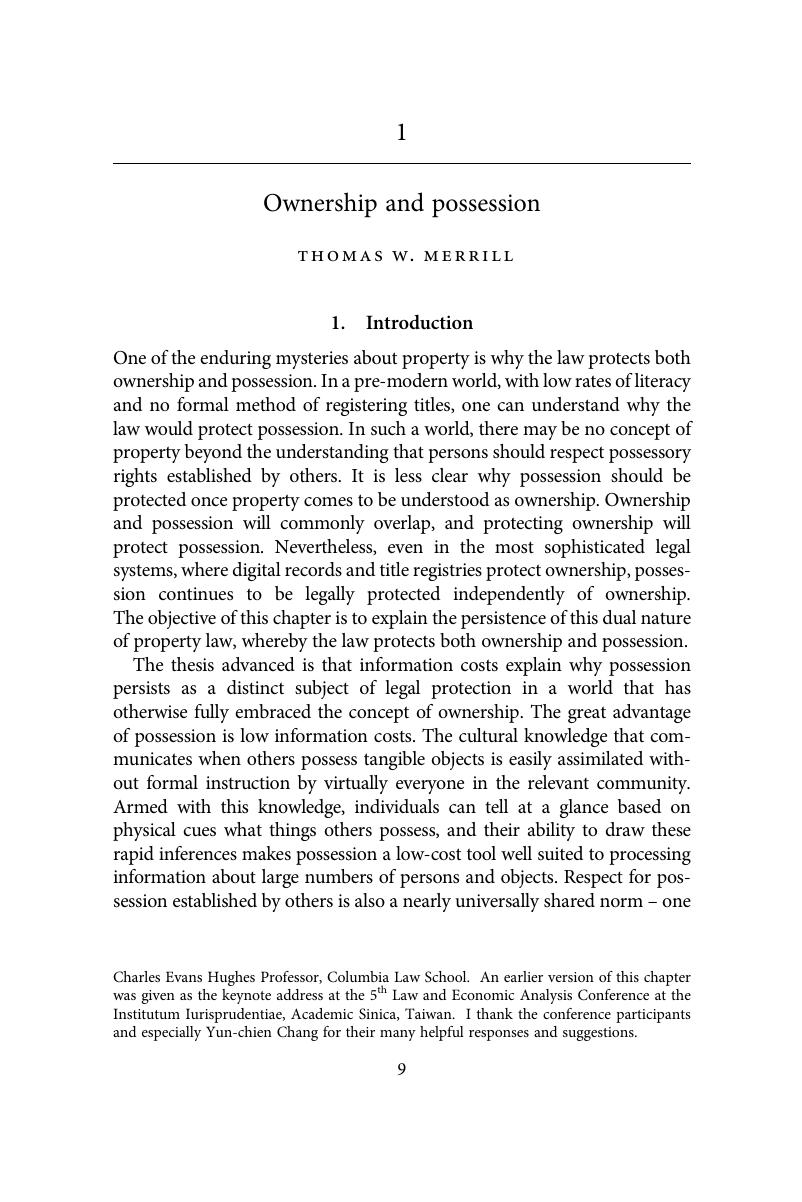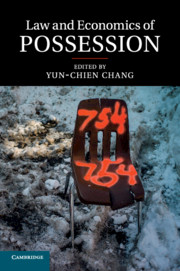Book contents
- Law and Economics of Possession
- Law and Economics of Possession
- Copyright page
- Dedication
- Contents
- Figures
- Contributors
- Introduction
- I Foundation
- 1 Ownership and possession
- 2 The law is nine-tenths of possession: an adage turned on its head
- 3 The elements of possession
- 4 The economy of concept and possession
- 5 What behavioral studies can teach jurists about possession and vice versa
- 6 The possession heuristic
- 7 Dividing possessory rights
- 8 The titling role of possession
- II Specific issues
- Index
- References
1 - Ownership and possession
from I - Foundation
Published online by Cambridge University Press: 05 May 2015
- Law and Economics of Possession
- Law and Economics of Possession
- Copyright page
- Dedication
- Contents
- Figures
- Contributors
- Introduction
- I Foundation
- 1 Ownership and possession
- 2 The law is nine-tenths of possession: an adage turned on its head
- 3 The elements of possession
- 4 The economy of concept and possession
- 5 What behavioral studies can teach jurists about possession and vice versa
- 6 The possession heuristic
- 7 Dividing possessory rights
- 8 The titling role of possession
- II Specific issues
- Index
- References
Summary

- Type
- Chapter
- Information
- Law and Economics of Possession , pp. 9 - 39Publisher: Cambridge University PressPrint publication year: 2015
References
- 3
- Cited by



